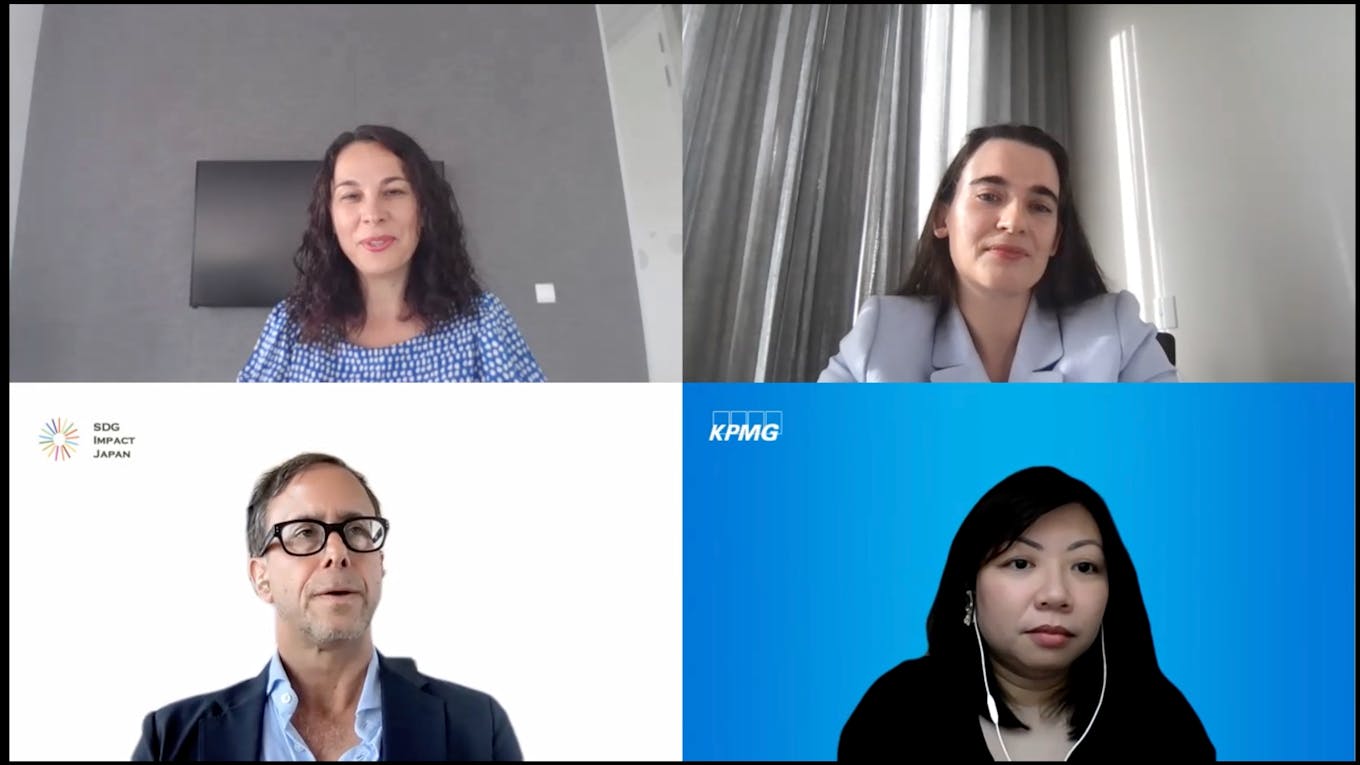Following a year of explosive growth in environment, social and governance (ESG) funds that observers say had coincided with a bull market, investors and portfolio managers are now facing a lull as interest in such funds see a sharp slowdown in the first half of 2022.
This latest development in sustainability-focused investment might have rattled some in the market, but experts say that the momentary pause has also afforded time for businesses and investors to assess and evaluate how to make ESG-related products deliver the outcomes that they seek.
Speaking at a senior leadership roundtable held virtually, and focused on how top management in the finance and human resource sector can drive effective ESG management, Australia and New Zealand Banking Group (ANZ) sustainable finance director Mara Chiorean said that as much as conditions driven by geopolitical turbulence had a big role to play in the ESG slump, the market is also grappling with investor fears of greenwashing – the labelling or marketing of products as sustainable or green when that is not the case. “These investors are becoming more rigorous and there is a lot more scrutiny around what is considered sustainable. Previously, we have been able to make ESG investment decisions based on assumptions, promised impact or potential, but now we are starting to see questions emerging: How is this being delivered? Could it just be a marketing gimmick rather than a way to drive business transformation?”

Clockwise from top left: Mara Chiorean, Elisha Harrington, Cherine Fok and Bradley Busetto. Image: Eco-Business
“Investors are looking for outcomes. There needs to be demonstration that the capital being put in is actually delivering the impact expected, or the additional value that sustainability brings. Time is needed to rebuild that trust,” said Chiorean at the private roundtable, jointly organised by ServiceNow, a California-based digital workflow company, and Eco-Business. Eco-Business was given access to report on the event.
Former United Nations diplomat and now co-CEO of sustainable investment firm SDG Impact Japan Bradley Busseto added that the rapid growth in ESG-focused products over the past few years has not “moved the needle much” as investors largely take an exclusionary approach – removing specific assets contrary to their criteria, such as avoiding investments in countries with poor human rights records or weapon stocks, but otherwise adopting a standard investment strategy.
Busseto argues that ESG now needs to be focused on “changing things proactively”, where there is deep engagement with companies on developing specific ESG-linked indicators, metrics and levers that can drive performance.
“This means looking at how we can improve our current suite of ESG investment products and helping to move capital markets in the right direction. We need to define the next generation of ESG investing,” said Busseto, adding that companies should also tap on technological solutions that are currently available, including sustainability platforms driven by artificial intelligence, to improve their reporting and decarbonisation efforts.
“
Investors are looking for outcomes. There needs to be demonstration that the capital being put in is actually delivering the impact expected, or the additional value that sustainability brings.
Mara Chiorean, sustainable finance director, Australia and New Zealand Banking Group
Beyond ESG compliance
Even with the enhanced scrutiny and caution, experts on the roundtable say that companies are now confident that ESG practices benefit their bottom lines.
Cherine Fok, director of sustainability services at KPMG Impact, an accelerator for professional services firm KPMG’s global ESG strategy, said that ESG is becoming top of mind for senior executives, and companies are going beyond compliance, to look at how ESG-linked metrics can help propel their business forward.
“[Companies] are focused on what the impacts of ESG are going to be for their business model going forward, through a more strategic and operational lens,” said Fok. “We are starting to see signs through board engagement, as well as oversight of top leaders where they are asking exactly what role it is that ESG plays within the scope of their responsibilities and the mandate that they have in charting out how ESG is going to become integral in their business.”
A recent study shared by ServiceNow showed that 73 per cent of financial leaders reported that a focus on ESG helped their companies deliver better financial results, since global consumers are five times more likely to trust, buy, champion and protect companies that have a strong ESG purpose.
Busetto points out that ESG metrics are increasingly being seen and proven as a driver of overall financial performance in companies.
“More ESG-oriented companies are beating benchmarks,” said Busetto. In July this year, news agency Reuters also reported that research obtained from a sustainability data firm shows that stock funds outperformed across global markets over the last five years if they were weighted toward companies with positive ESG scores.
Busetto believes that Asia, traditionally seen as a laggard on the ESG front, now has an opportunity to leverage on this development. To make ESG part and parcel of their business strategy, Busetto believes that companies need to build metrics around it, link remuneration to sustainability indicators and “really put the money where the mouth is”.
Bringing net-zero innovations to market
Globally, more than 3,000 businesses and financial institutions are now working with the Science-Based Targets Initiative (SBTi), an internationally-accepted benchmark for ensuring accountability in emission reduction efforts, to assess and validate their set net-zero targets. In Asia Pacific, nearly 300 organisations have done so and the number is growing.
Chiorean says that the slew of commitments is welcomed but the next step of delivering on these “big and broad pledges” is even more crucial, and that would mean scaling current sustainability-related technology and innovations, and creating a pathway for widespread market adoption of these solutions. “This is where the rubber meets the road. For example, in the case of green hydrogen, we need to demonstrate how the shift to this alternative fuel source can drive down carbon emissions.”
Similarly, Chiorean highlighted that investments are being poured into the alternative protein sector and in cleaner aluminium production technologies. “But how will the technology be made available in the future? Will everyone be developing their own and does that mean it is going to take decades for us to see results? Or will there be wider adoption and disruption to the market?”
Elisha Harrington, senior director of ServiceNow’s chief innovation office and moderator of the roundtable noted that sustainability also spurs multidisciplinary collaboration, as in the case of banks increasingly working with technologists, climate scientists and university academics to create solutions for the climate problem. “These people used to work on their own or with people in a similar field, but now they are looking outward and acknowledging that they need other expertise to help solve these complex problems,” she said.
Fok agrees that new business synergies and structures where cooperation and partnerships are increasingly purpose-aligned are now emerging. “There is hardly any one single organisation that we work with now that is able to carry out the [sustainability] mandate by themselves,” said Fok. “This ultimately might result in a fundamental shift in how our economy works, in which the role that a company plays also changes.”
For now, experts believe that achieving real ESG integration needs more work. Fok describes the whole process as akin to running a relay race, where individuals within an organisation with different skill sets work towards the same finishing line, but also collaborate and “pass the baton” when they run out of stamina.
“Organisational alignment is the biggest challenge, because we are used to setting individual-centric performance targets and incentives and people are not used to working towards an integrated purpose. This is where leadership becomes important, and organisations are able to differentiate themselves if they have leaders with strong business acumen.”





















